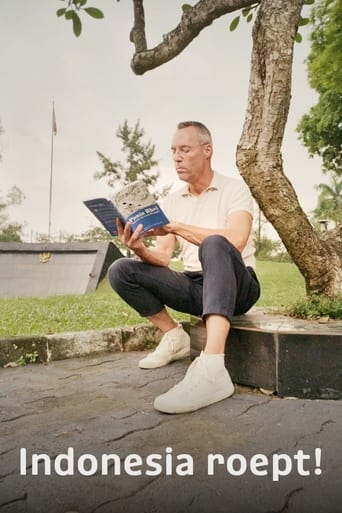
Final Battle
In the battle for the Dutch East Indies, Dutch troops won the main prize in 1948. After a spectacular airborne landing, they conquer Jogjakarta, capital of the Republic of Indonesia, and capture President Sukarno. Hans Goedkoop's grandfather is in command and Hans follows in his footsteps. He visits a wayang play about the attack and speaks to Indonesian witnesses. The victory turns out to be short-lived. The Indonesians are not giving up the fight, the death tolls are rising and the international community is turning against Dutch action. Should the Netherlands give up the fight and should the Dutch leave the country, including Hans' grandfather?
Country: NL
Language: Nl
Runtime:
Season 1:

Hans Goedkoop leaves for Indonesia in search of traces of his grandfather Rein van Langen. He was born in Java at the end of the 19th century and would later become chief of staff of the colonial army. How Indian is Hans' family actually? A DNA test shows a surprising result and the trip through Indonesia brings more surprises, such as the shelter for children of Dutch men and Indonesian women, founded by missionary 'Pa' van der Steur. In the colony it is crucial which layer you belong to; the more European, the better. What frayed edges does such a strict division cause, also in Hans' family?

In the Dutch East Indies, things could not have happened in the 1920s. The economy is flourishing, the profits are enormous, especially at the extensive plantations on Sumatra. That's where Hans Goedkoop's grandfather starts his career as a young lieutenant in the colonial army. The KNIL was also deployed during the first major political uprising in the colony. The local population no longer accepts the oppression by the Dutch authorities. Hans learns how Indonesian doctors want to cure their country of the disease called colonialism. He also visits the Ombilin coal mines, where forced labor was common. What did colonialism look like in practice?

In the Dutch East Indies, the authorities want peace and prosperity, but in the 1930s things were brewing in the colony. There is an economic crisis, workers are being laid off en masse. National Socialism is rising, but also nationalism among Indonesians. A young engineer, Sukarno, openly denounces the colonial government. His political supporters are punished with exile to a remote and disease-ridden camp. But there are also threats from outside. Hans Goedkoop's grandfather is stationed as an officer in a strategic location, Balikpapan, where a Japanese attack threatens. What awaits a soldier in the colony?

When the Germans invaded the Netherlands in May 1940, Hans Goedkoop's grandfather was on extended leave in The Hague. He refuses to sign a German declaration of loyalty and is taken to the German prisoner of war camp Colditz. As a result, he has little experience of what happens in his native Dutch East Indies, where life under the Japanese occupation changes completely in a few years. The Dutch population disappears into camps or performs forced labor. Indonesians also have to deal with forced labor and hunger. Yet Indonesians also derive hope from the Japanese. Is colonial rule in the country coming to an end for good?

Hans Goedkoop's grandfather, officer Rein van Langen, returns to the Dutch East Indies after the Japanese capitulation in 1945. The independent Republic of Indonesia has just been proclaimed there. Stunned by the chaos in the country, he and his troops prepare to restore Dutch power over the country, but many Indonesians are now really tired of any foreign authority. Merdeka - freedom! Months of horrific violence follow, known in the Netherlands as the Bersiap. Hans talks to eyewitnesses from different sides and to Dutch soldiers who served in the Tiger Brigade under the command of his grandfather. Will the Netherlands get its colony back?

After a year of fighting, the Dutch East Indies have still not been reconquered by the Dutch troops in 1947. Frustration is mounting. The army is ordered to force a breakthrough with a police action - another word for large-scale war.

In the battle for the Dutch East Indies, Dutch troops won the main prize in 1948. After a spectacular airborne landing, they conquer Jogjakarta, capital of the Republic of Indonesia, and capture President Sukarno. Hans Goedkoop's grandfather is in command and Hans follows in his footsteps. He visits a wayang play about the attack and speaks to Indonesian witnesses. The victory turns out to be short-lived. The Indonesians are not giving up the fight, the death tolls are rising and the international community is turning against Dutch action. Should the Netherlands give up the fight and should the Dutch leave the country, including Hans' grandfather?

At the end of 1949, Dutch rule over Indonesia ended. The colonial army to which Hans Goedkoop's grandfather has been associated all his life is being disbanded. As chief of staff, he is even responsible for that operation. There is also one last, secret job: smuggling the infamous Captain Raymond Westerling out of the country. He does so, but his involvement leaks out. Just not fired, but with a knighthood - so he leaves his native country. Is he bitter? Hans talks about it with his family. What is it like to lose a war and then your country? How do you process that and how does it continue in the family, even into our time?


